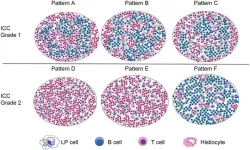The COVID-19 pandemic and the lockdown measures to prevent contagion resulted in extensive disruptions in children’s and adolescents’ everyday lives. A new study in Child Development from the Aarhus University Hospital in Denmark, University of California, Riverside and University of California, Davis in the United States, investigated personal memories (i.e., memories for episodes experienced in one’s own life) about the first lockdown in Denmark in Spring 2020 among children and adolescents and how this may have impacted their psychological well-being over the following year.
For context, in Denmark, the first school closure was mandated on March 11, 2020. School closure lasted until April 17, 2020, for younger students (preschool to 5th grade), and persisted until May 18, 2020, for older students (6th to 9thgraders). As in other countries, the numbers of COVID-19 infections increased drastically during Fall 2020, resulting in a second school closure from December 17, 2020, until May 6, 2021. In addition to school closures, Danish policies also included more extensive government-enforced lockdown measures, such as closure of movie theaters, restaurants, social distancing, ban of gatherings, work from home orders and mask mandates.
The study, which may be the first and only longitudinal study to assess whether personal memories predict declines in the psychological well-being of children and adolescents during the COVID-19 pandemic, showed that the psychological well-being of adolescent females fared the worst. Moreover, memories that included more factual information about COVID-19 and included more negative affect predicted more robust declines in psychological well-being. The findings underscore how aspects of personal memories might help exacerbate or attenuate the negative consequences of the experience of the COVID-19 period from March 2020 to July 2021.
Researchers suggest that future work might benefit from investigating how children’s relative tendency to include semantic details (e.g., facts about COVID-19) versus episodic details (e.g., where they were when they first heard about lockdowns, what specific interaction happened with family or friends) in their narratives about past and future events of local and global significance might be linked to children's and adolescents' psychological adjustment and coping in difficult times. The Society for Research in Child Development had the opportunity to discuss this research with Dr. Tirill Fjellhaugen Hjuler from the Department of Child and Adolescent Psychiatry at the Aarhus University Hospital and Dr. Simona Ghetti from the Department of Psychology at the University of California, Davis.
SRCD: What led you to study how the COVID-19 pandemic affected children and adolescents in Denmark?
Dr. Hjuler: As lockdown policies began to be implemented across the world, scholars and lay people alike started asking how they would impact children and teens. Different positions were debated ranging from sobering concerns for their mental health to expectations of increased resilience, which were all based on little direct knowledge of how the effects of an event of the magnitude of this pandemic would manifest. We deemed it necessary to conduct a longitudinal study to seek empirical answers to the many questions our society was grappling with.
Dr. Ghetti: I want to add a word of praise about Dr. Hjuler’s ingenuity. At the time, she was a graduate student planning to spend a year visiting my laboratory. As the COVID-19 pandemic shut the world down, she immediately appreciated the importance of turning to her community and pivoting to address different research questions than originally planned. Examining autobiographical memory about lockdown periods provided an unprecedented vantage point on how children and adolescents experienced and were affected by this global event. Success in graduate school is often about understanding how to ask the right question at the right time.
SRCD: Can you please provide a brief overview of the study?
Dr. Hjuler: We examined the longitudinal associations between the content of personal memories for the COVID-19 pandemic lockdowns and children's and adolescents’ (8- to 16-year-olds) mental health. Participants were assessed three times (June 2020, January 2021 and June 2021). At each time point, they were asked to write about their personal memory from the first lockdown and to assess their psychological well-being and depressive symptoms. All the memories were then coded for content such as the emotional tone, episodic details and semantic (i.e., factual) information about COVID-19 in general.
First, we found that children’s and adolescents’ mental health decreased over time, and that adolescent females fared the worst at all time points. Second, we found that the content of memories lost detail over time, in terms of episodic specificity, semantic content, and emotional valence. Critically, we found that children and adolescents whose narratives contained more negative emotional content and included more factual information about COVID-19 and the resulting restrictions, fared the worst over time.
SRCD: How can these findings be useful for parents and caregivers, policymakers, and educators interested in the well-being of children and adolescents?
Dr. Hjuler and Dr. Ghetti: Our findings suggest that the way children and adolescents remember and reflect upon difficult times, such as the COVID-19 lockdowns, might affect their mental health over time. We have known from previous research that there are associations between the emotional content of personal memories and indicators of psychological adjustment. Here, we are demonstrating a longitudinal association linking directly negative emotionality in narratives concerning events of global significance to measures of future well-being. One interesting finding is that integrating higher levels of factual information about difficult times also seems to have a negative impact on children’s and adolescents’ mental health. Imbuing factual information in a personal narrative may be a sign that children and teenagers attempted to distance themselves from the personally unique meaning of the lockdown experience. Thus, adults ought to be aware of how information about potential difficult times is discussed and communicated: observing certain content during child reminiscing may provide insight on risks for well-being.
SRCD: Were you surprised by any of the findings?
Dr. Hjuler and Dr. Ghetti: Yes, we were particularly surprised to find a decrease in the memories’ negative emotional content over time as actually we expected an increase in negativity, reflecting the burden of facing the continued consequences of the pandemic over time. It is possible that this is because our analysis focused on memories for the first lockdown and by the time we assessed them later, other memories for the pandemic became more dominant or emotionally relevant. Moreover, as children and adolescents during lockdowns were restricted from in-person socialization and were unable to leave their residence over extended periods of time, their experiences became less unique and more schematized. Despite this normative change, the participants whose narratives were rated as conveying greater negative emotionality did worse over time, underscoring the importance of that early emotional content for participants’ well-being.
SRCD: What’s next in this field of research?
Dr. Hjuler: We believe that future work might benefit from investigating how both factual and episodic information in personal memories might be linked to children's and adolescents' psychological adjustment and coping in difficult times. In addition, future research should examine how memory narratives concerning challenging times, such as the lockdowns, might be different from other types of children’s narratives, including children’s and adolescents' personal memories about other relevant events and thoughts about the future. Only by examining the content of all these different memories will we know if these results reported here are specific to the first period of the pandemic, when radical changes in children’s and adolescents’ lives occurred, or if instead our patterns of results extend to other forms of remembering and imagining pandemic-related experiences.
Summarized from an article in Child Development, “Remembering History: Autobiographical Memory for the COVID-19 Pandemic Lockdowns, Psychological Adjustment, and their Relation over Time,” by Hjuler, F.T. (Aarhus University Hospital), Lee, D. (University of California, Riverside), Ghetti, S. (University of California, Davis). Copyright 2024 The Society for Research in Child Development. All rights reserved.
END





